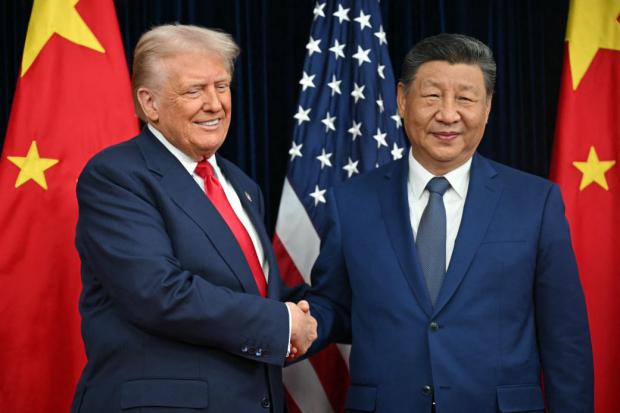
Breaking News
 The Days of Democracy Are Over
The Days of Democracy Are Over
 Elon Musk Described an AI Device to Replace Phones in 5 Years
Elon Musk Described an AI Device to Replace Phones in 5 Years
 Deposit Insurance For Billionaires?
Deposit Insurance For Billionaires?
 Rep. Troy Balderson Is Right: Coal And Gas Drive Affordable, Reliable, And Clean Energy
Rep. Troy Balderson Is Right: Coal And Gas Drive Affordable, Reliable, And Clean Energy
Top Tech News
 Graphene Dream Becomes a Reality as Miracle Material Enters Production for Better Chips, Batteries
Graphene Dream Becomes a Reality as Miracle Material Enters Production for Better Chips, Batteries
 Virtual Fencing May Allow Thousands More Cattle to Be Ranched on Land Rather Than in Barns
Virtual Fencing May Allow Thousands More Cattle to Be Ranched on Land Rather Than in Barns
 Prominent Personalities Sign Letter Seeking Ban On 'Development Of Superintelligence'
Prominent Personalities Sign Letter Seeking Ban On 'Development Of Superintelligence'
 Why 'Mirror Life' Is Causing Some Genetic Scientists To Freak Out
Why 'Mirror Life' Is Causing Some Genetic Scientists To Freak Out
 Retina e-paper promises screens 'visually indistinguishable from reality'
Retina e-paper promises screens 'visually indistinguishable from reality'
 Scientists baffled as interstellar visitor appears to reverse thrust before vanishing behind the sun
Scientists baffled as interstellar visitor appears to reverse thrust before vanishing behind the sun
 Future of Satellite of Direct to Cellphone
Future of Satellite of Direct to Cellphone
 Amazon goes nuclear with new modular reactor plant
Amazon goes nuclear with new modular reactor plant
 China Is Making 800-Mile EV Batteries. Here's Why America Can't Have Them
China Is Making 800-Mile EV Batteries. Here's Why America Can't Have Them
Trump-Xi truce won't save the dollar from the yuan

As global investors grow wary of Donald Trump's dollar, they're increasingly taking the Chinese yuan out for a ride.
Data from China's State Administration of Foreign Exchange shows that fixed-income assets held by banks outside the country more than doubled over the past decade, jumping to $1.5 trillion, with yuan-denominated assets now at US$484 billion (a quadrupling in just the last five years. That includes $360 billion in loans and deposits, up from just $110 billion in 2020.
This surge comes as Xi Jinping's Communist Party leverages China's status as the world's top creditor to increase the use of the yuan globally. This includes China opening more channels for overseas investors to buy yuan-denominated bonds.
Data from the Bank for International Settlements shows that yuan-denominated lending to borrowers in developing countries increased by $373 billion over the last four years. "The year 2022 marked a turning point away from dollar- and euro-denominated credit and towards renminbi-denominated credit" to such borrowers, the BIS said.
It's all part of Xi's long-term vision of boosting the yuan's role in trade and finance. This is both to increase China's global footprint and push back against US policies China sees as weaponizing the dollar's reserve currency status.
Trade finance is playing a big role in the increase. In September, SWIFT data showed that the yuan's share in global payments had reached 3.17%, up from 2.93% in August.
Though still small relative to the dollar and euro, this marks steady progress in internationalizing the yuan. The Chinese currency is indeed seeing growing adoption in cross-border transactions amid the global economic transition.
As the yuan is gaining prominence, Trump is doing his best to undermine the dollar with tariffs, attacks on the Federal Reserve, and pushing the national debt toward US$38 trillion. Despite Trump's spin about an "amazing" meeting with Xi, doubts abound about his desire to stop hitting the global economy with new waves of tariffs.
This has officials in Beijing quietly and meticulously seizing the moment for a Chinese currency some investors see as ready to fill the void.

 China Innovates: Transforming Sand into Paper
China Innovates: Transforming Sand into Paper

